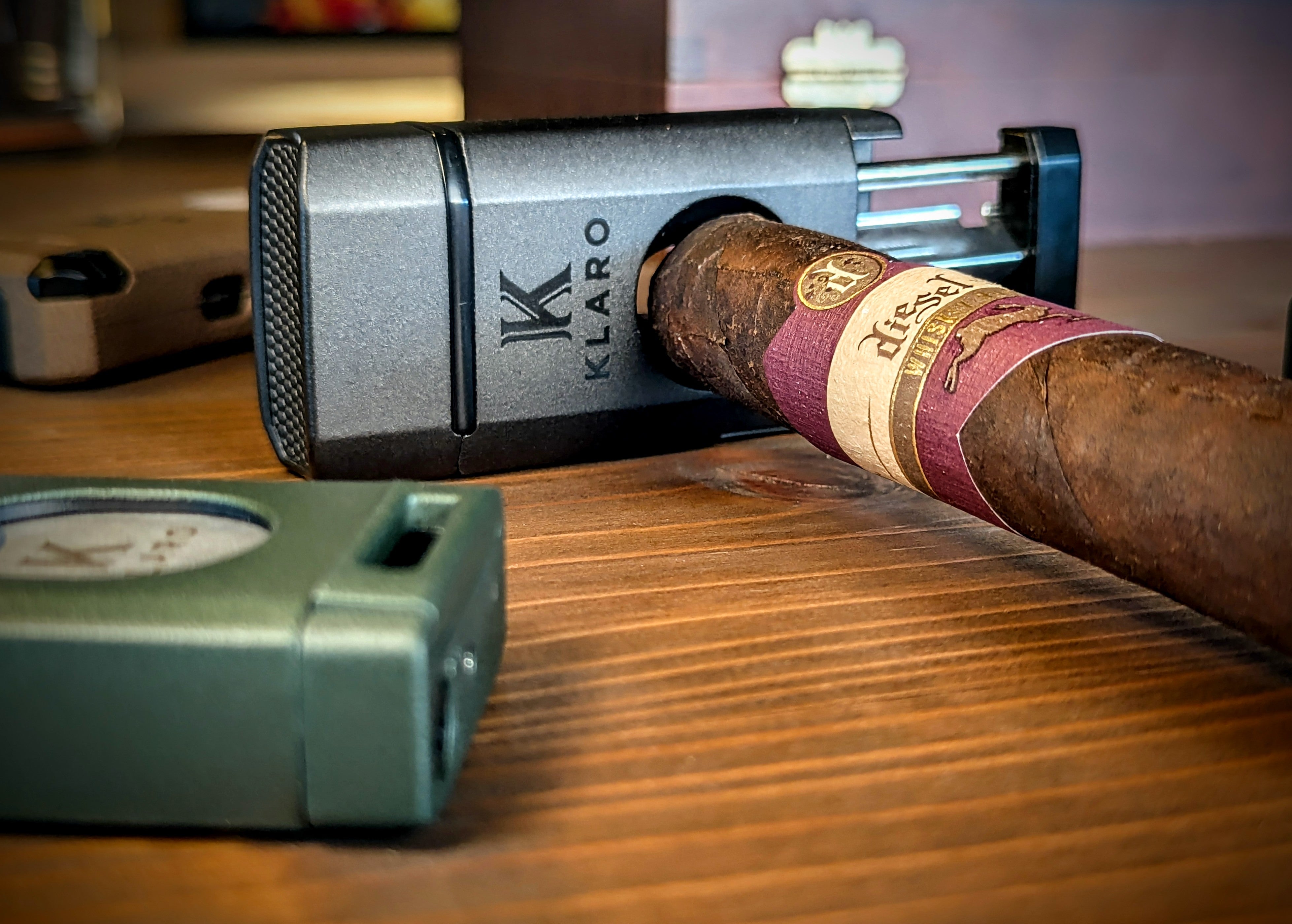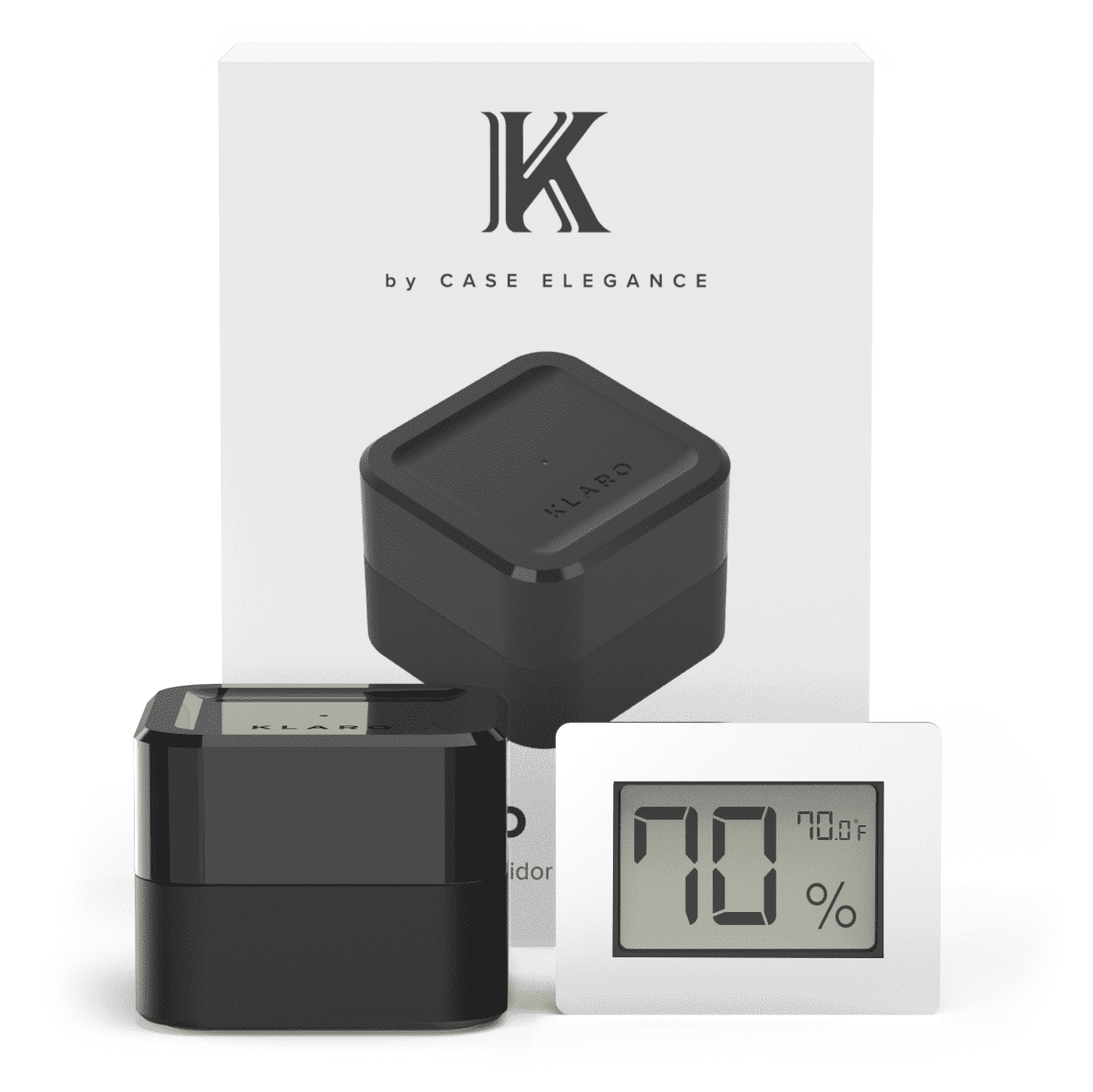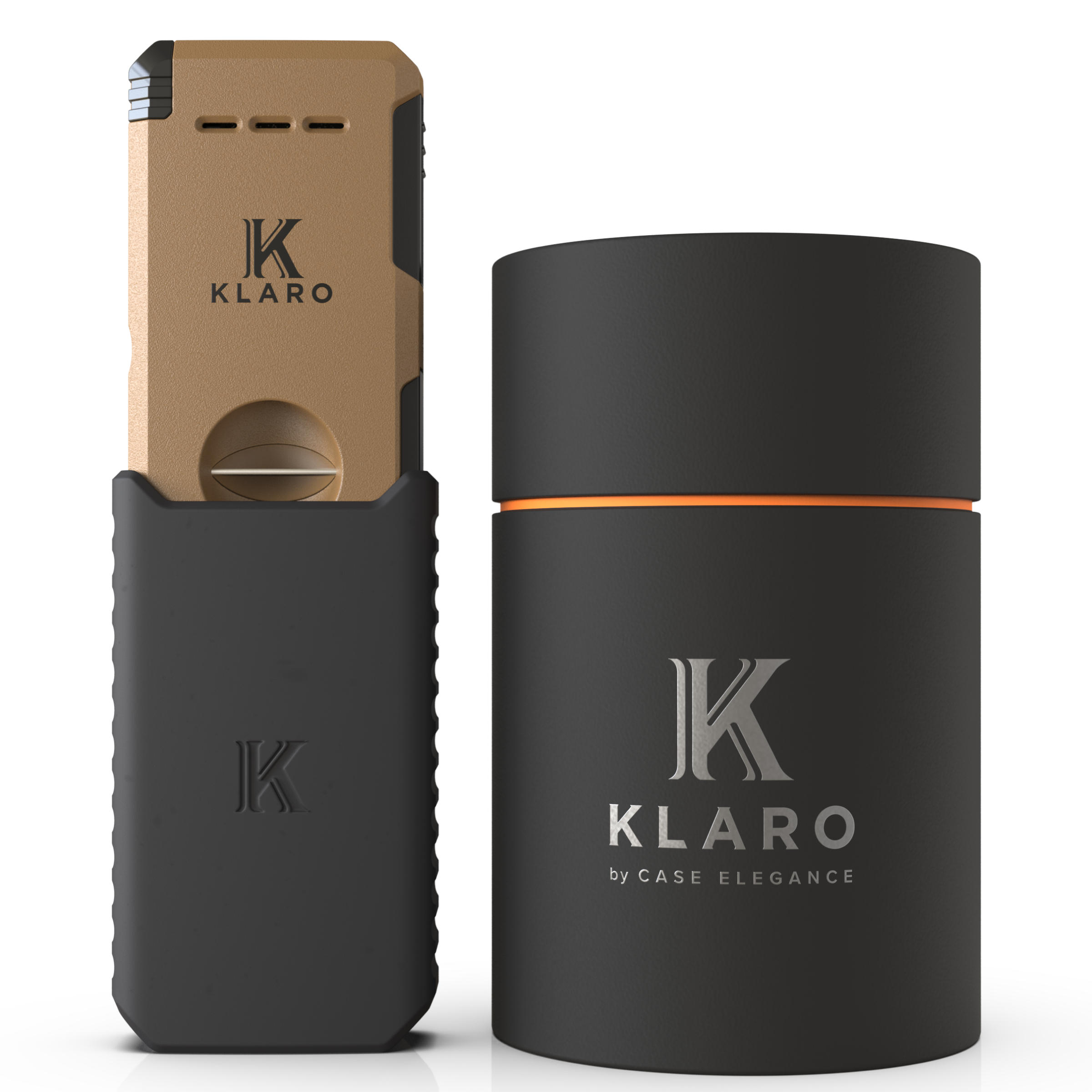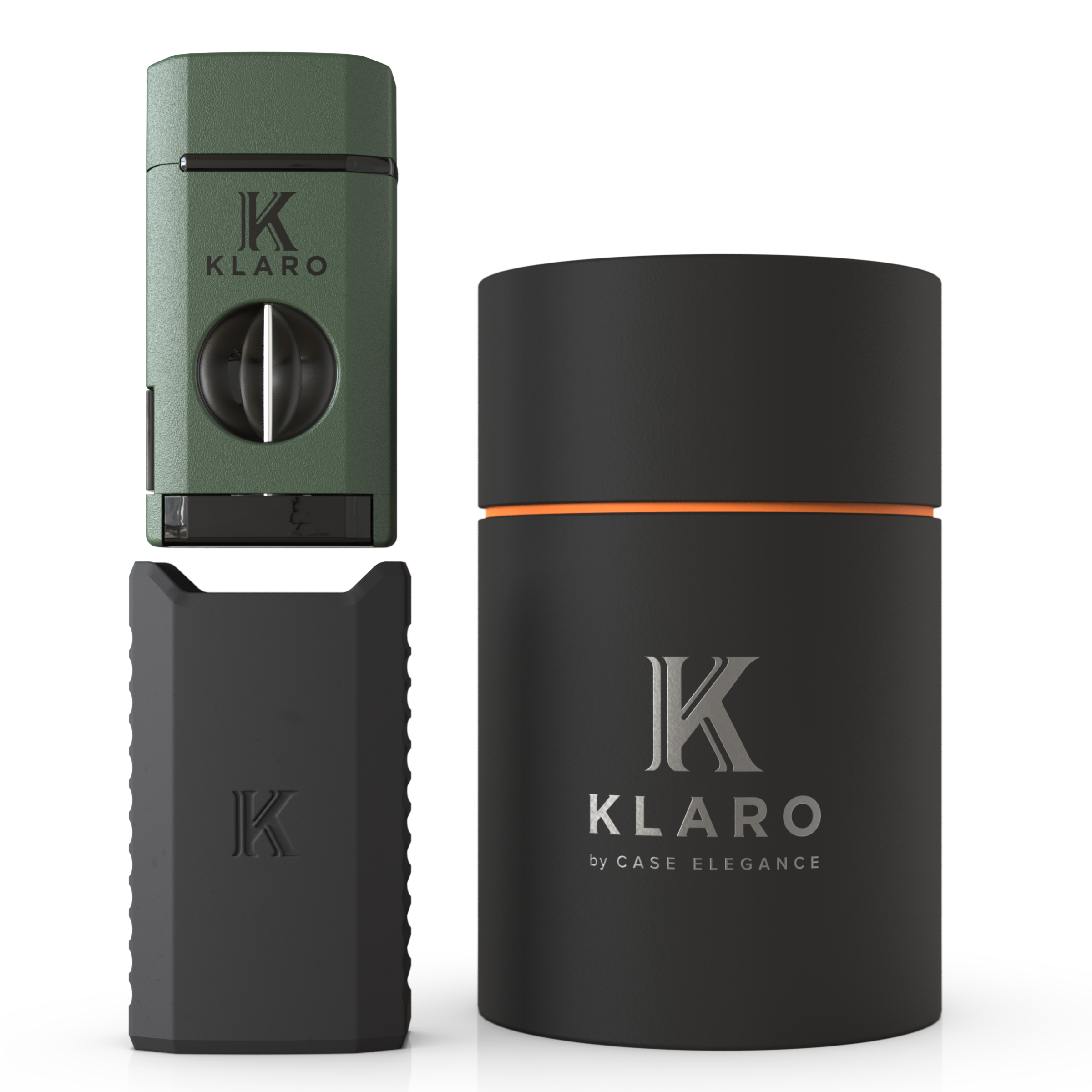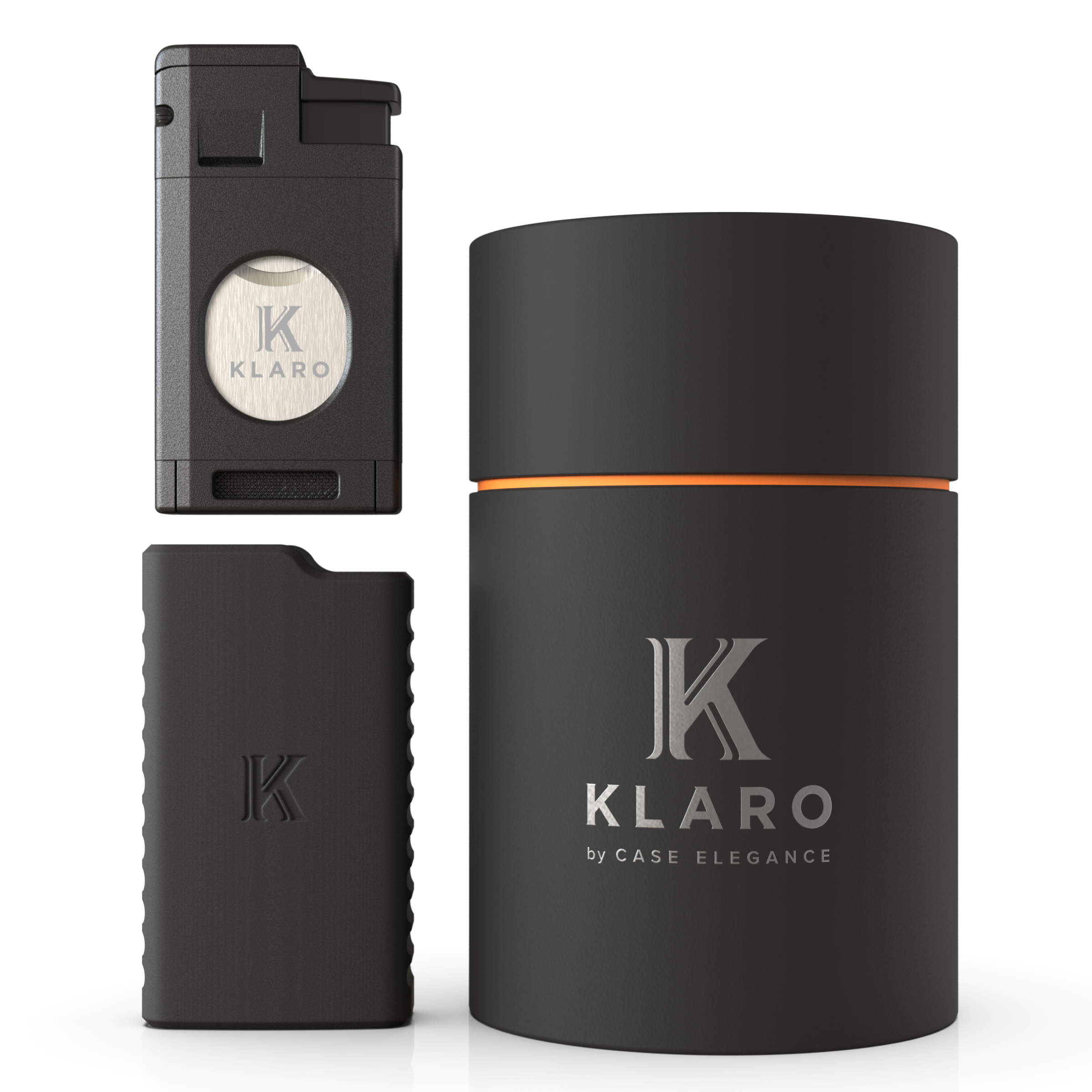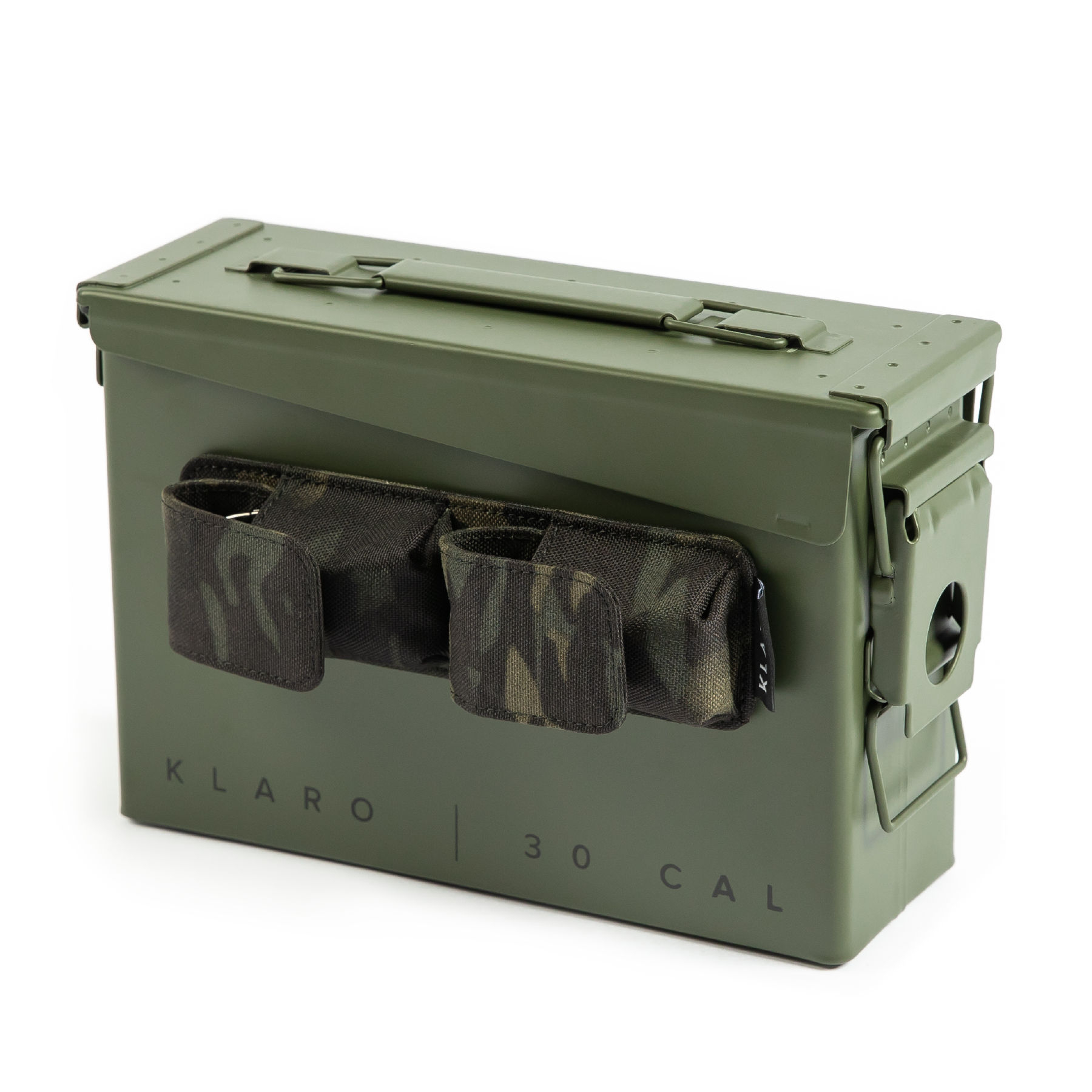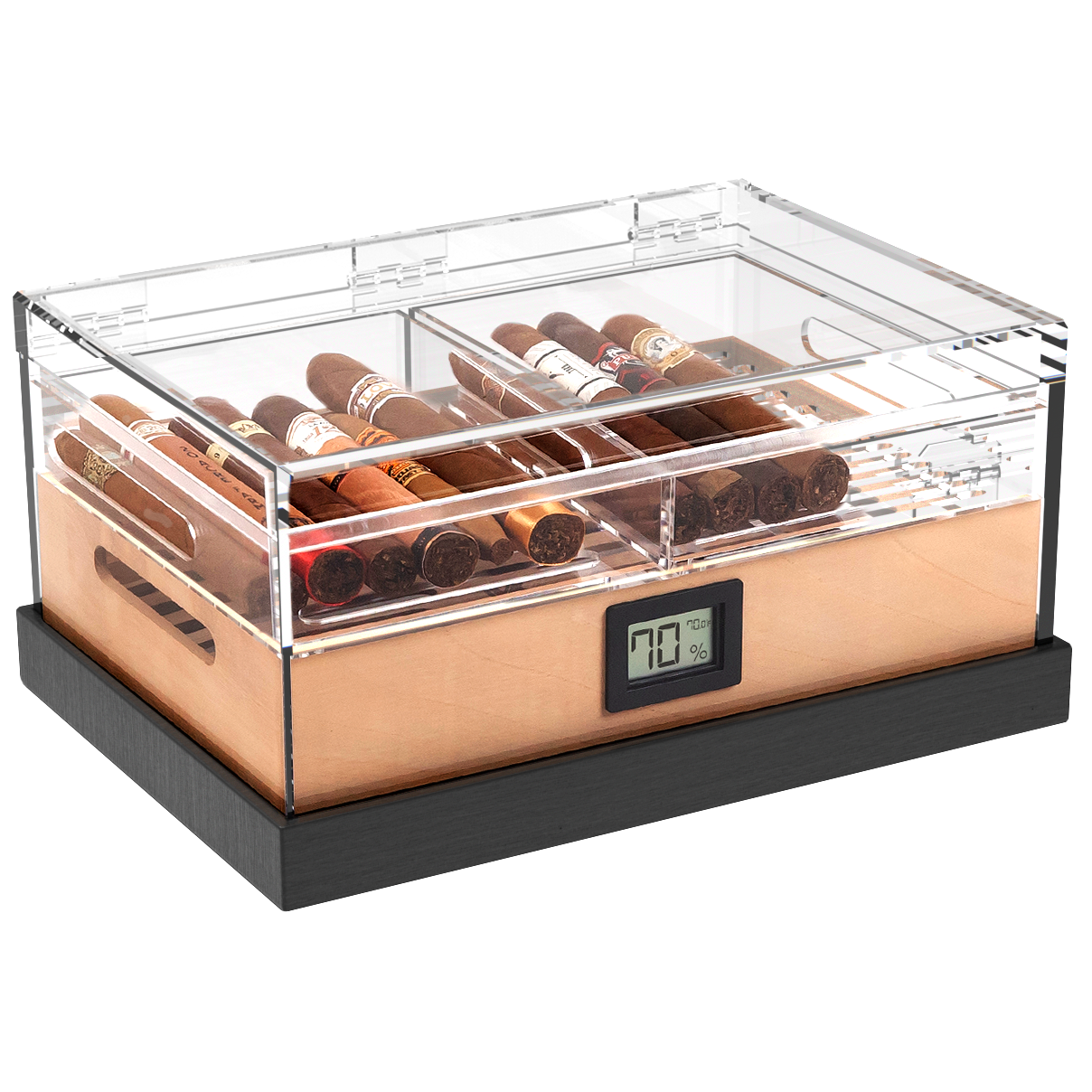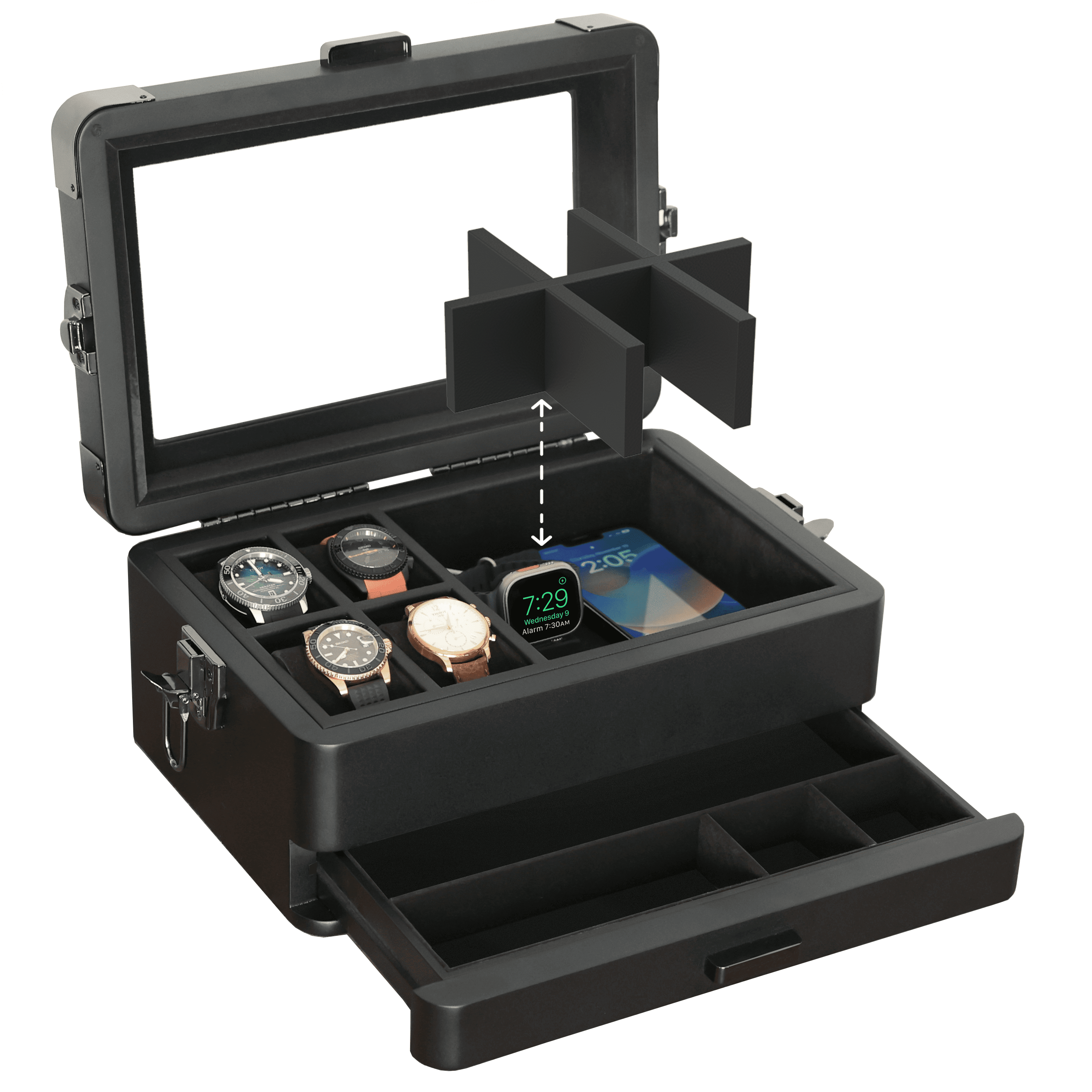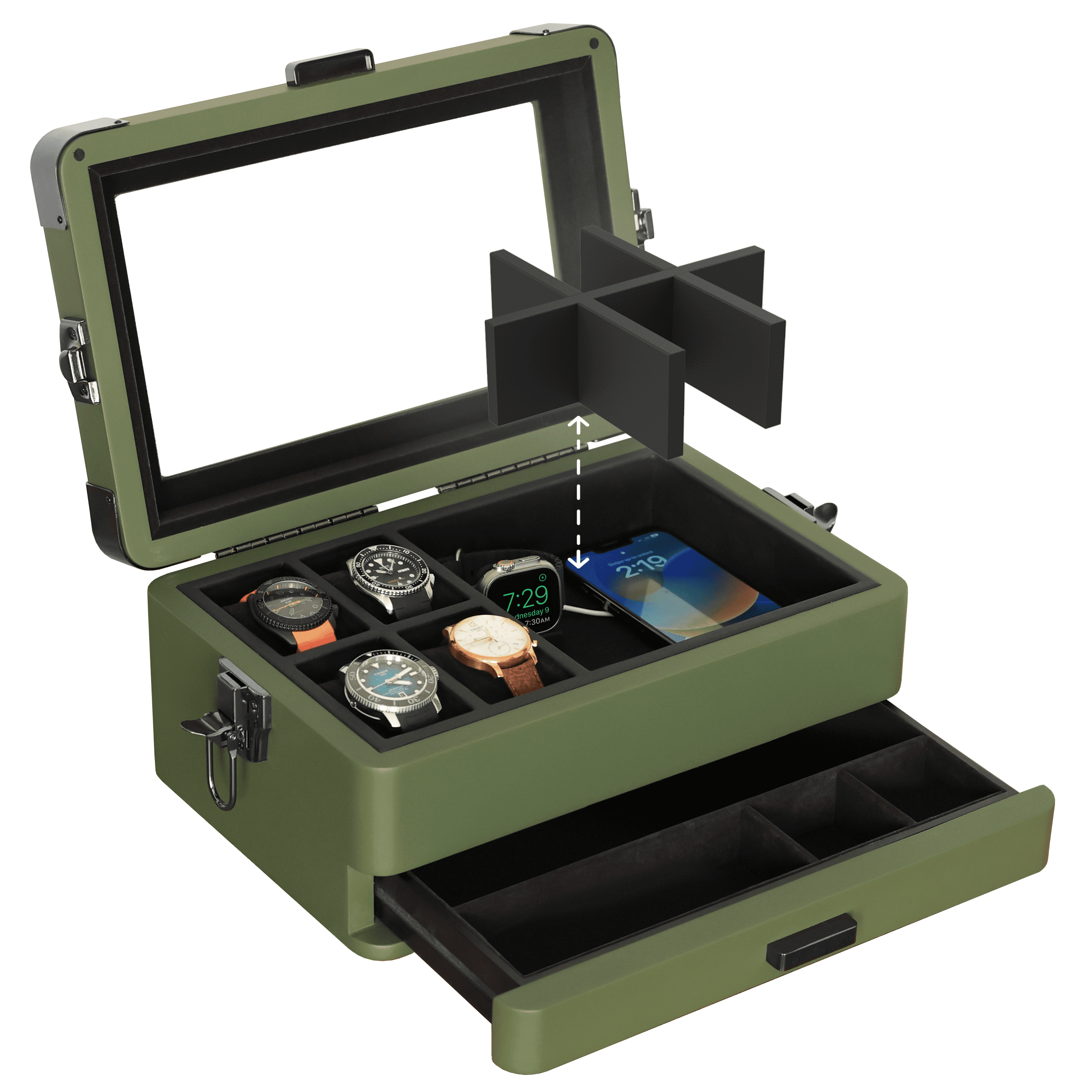Climate change. It’s not just for environmentalists and meteorologists anymore. To hell with what the weather looks like outside. Cigar smokers have to worry about what’s happening inside their humidor at that particular moment and prepare for what next week’s forecast may bring.
A well-seasoned, properly sealed humidor box is supposed to be a cocoon for cigars. An eddy in the whirlpool of life, where humidity and temperature rarely change at a rapid rate, if at all. However, the outside world can still affect how a humidor functions, and if given enough time, can royally ruin a stash of stogies.
Climate can make or break the wrapper on a hand-rolled cigar, and that humidor humidity level is sure to fluctuate depending upon the season and the level of routine humidor maintenance being conducted.
Successful, year-round cigar storage requires knowing your climate, selecting the right environment for your humidor box, and having the proper tools and accessories on hand. Failure to attend to any of these things brings with it the risk of a humidor transforming from a protective cocoon into a coffin for a cigar collection, and here's why...
Location… It’s Not Just About Latitude and Longitude
It may sound like a no-brainer, but you’d be surprised by how many people think that putting their humidor box on the windowsill to "warm up" is a good idea. Allowing cigars to roast in direct sunlight when it gets cold out is never a good idea. It’s not like stuffing a handful of dried-out cigars into a plastic bag with a soggy paper towel is going to magically make them bounce back, either, but sadly, that happens too.
Climate matters, both regarding where you stow your stogies and the type of environment you call home. For instance, elevation is one of those elements that few people consider when they think of long-term cigar humidor box storage woes. Those of us who have spent time way up in the mountains and felt the negative effects of thin air know full well that extreme elevation is not a good host for humidity.
It’s no secret that tobacco thrives in muggy environments closer to the equator. It won’t happen overnight, but a cigar smoker in Breckenridge, Colorado, is going to have to keep a much closer eye on their stogie stash than, say, someone bumping around the bayou in Bon Secour, Alabama.
Elevation issues go well beyond influencing the internal humidor humidity our cigars rely upon, too. Drier, thinner air can cause the humidor's wood to contract, which, over time, can lead to the humidor lid not sealing properly.
So if that nosebleed you suddenly got while hiking in the Andes isn’t enough of a warning sign, try the following scientific fact on for size.
“On the average, fully half the water in the atmosphere lies below 0.25 km (about 0.2 miles), and satellite observations over the United States in April revealed 1 mm (0.04 inch) or less of water in all the air above 6 km (4 miles).” -Encyclopedia Britannica
So, essentially, as soon as you start climbing in elevation, humidity becomes increasingly short in supply with each passing increase in altitude.
Seasonal Changes & Humidor Humidity
In most places around the world, humidity fluctuates on a massive scale depending upon the season.
For most of the world, summer rains usher in a staggering spike in humidity, which at first glance may appear to be a blessing for our cigars and the humidors in which they reside. But a sudden spike in sticky air can spell disaster for a poorly sealed humidor box, as soggy stogies rarely burn right, and issues like humidor mold are destined to fester when left unattended.
In contrast, there’s a reason why winter skincare products are in high demand every autumn, as cold weather often brings with it dry air. Just like the epidermis on our bodies, the wrappers on cigars are prone to drying out and cracking when exposed to excessively dry environments.
Additionally, those living in areas where dry winter weather is a concern will often find that the use of a specialized digital hygrometer for humidors and run-of-the-mill humidor packs simply won’t cut the kimchi. This is why having a properly calibrated humidification device that has been loaded with a proprietary Winter & Dry Climate Solution is vital for negating the risk of cigars drying out during the colder, drier months.
These formulas pack an enhanced blend of propylene glycol and distilled water to help give a cigar humidor box the moisture boost it requires during the winter months. Remember, humidor wood is permeable, so unless you are relying upon a composite humidor travel pack, that optimum 65-72% humidity level is going to fluctuate as that Spanish cedar moistens up or dries out.
Furthermore, those who live in arid environments that do not see significant spikes in humidity should utilize this robust humidification blend year-round. With the appropriate amount of humidity present, a well-built humidor can maintain a balanced medium year-round, regardless of where you live in the world.
Tobacco Nerd Note: If you are having issues with your humidor's relative humidity dropping in winter, and you have been keeping it in a heated area in the house, try adding an additional amount of winter humidor solution and moving your humidor to a neutral area. A well-insulated room that does not receive a lot of direct heat via an HVAC system is ideal. By placing your humidor in a room that does not get blasted by ultra-dry furnace heat, you may be able to reduce the risk of your cigars drying out during the colder months of the year. In contrast, if you find your humidity levels are dropping with the mercury, try moving your humidor to a warmer area in the house, as that room may be too cold.
How to Avoid a Climatic Cigar Catastrophe
If you want to make cigar storage safety a priority, and climate is indeed a concern, then you will want to keep a close eye on the humidity within the room where your humidor box is stored.
Compared to a digital hygrometer for humidors, which focuses solely on humidor box internals, the Klaro Valet smart hygrometer will tell you everything you need to know about the climate of the room itself and what your humidor needs at any given moment. Any sudden changes in moisture levels or temperature can be easily read from a connected device and then offset by either increasing or lowering the humidity within the humidor, and then adjusting the thermostat and/or HVAC vent.
Something else to consider is the fact that not all cigars are constructed from the same tobacco. A moist, coarsely wrapped oscuro or corojo is going to stand up to a dry environment a hell of a lot better than a crisply constructed Connecticut shade smoke or even a Cameroon wrapper. Delicate wrappers have been known to crack and burn like crap when smoked in excessively dry environments, so bear that in mind if arid or wintry smoking sessions are in store.
A few other things to keep in mind when protecting cigars from “climate change” are:
- Always make sure your cigar humidor box has a good seal
- Check your humidity levels regularly (both outside the humidor and within)
- Calibrate your hygrometer and test its accuracy annually
- Avoid unnecessarily opening the humidor lid when possible
-
Retain a monthly humidor maintenance regimen
Parting Puffs
While we can’t control the weather, as cigar humidor owners, we can maintain a balanced environment for our stogies with the right gear and a little due diligence. It may take a little tweaking and practice, but the addition of a few helpful humidor box accessories and a watchful eye from something like a Klaro Valet will help you stay on top of those hygrometer numbers.
Just remember that no matter what you smoke, all cigars react to the environment around them. May it be a travel humidor case, a glass canning jar, a walk-in humidor, or a lunch bag, the conditions within these microclimates all influence how tobacco ages and dries.
So assess your environment, consider your house’s internal humidity and temp levels, beware of seasonal humidity and temperature changes, rotate those sticks every week, and keep a close eye on that forecast.
Every climate is different, so if you feel that we didn’t cover a particular topic in today’s article, drop us a line. Here at Case Elegance, we’re always interested to hear your “burning” cigar and humidor questions. To learn more about humidor care and how to best maintain your cigars, check out our ultimate humidor guide as your next read.


